The shipbuilding industry, a cornerstone of global trade, national security, and technological advancement, is undergoing a crucial transformation. As the demand for ever-more complex and sustainable vessels increases, so too does the need for a workforce that reflects the diversity of the maritime world. Promoting diversity and inclusion within shipbuilding isn’t just a social responsibility; it’s a strategic imperative that unlocks innovation, strengthens problem-solving capabilities, and ultimately builds a more robust industry for the future.
Benefits of a Diverse Workforce
Imagine a team of shipbuilders all coming from the same background, educated at the same institutions, and with identical experiences. While they may be highly skilled, their individual problem-solving approach would likely be very closely aligned. Now, consider a team where each member brings a unique perspective shaped by their cultural background, educational journey, and personal experiences. This diversity is a powerful asset, not just for fostering a more equitable workplace, but for driving innovation, strengthening problem-solving capabilities, and building a more successful shipbuilding industry.
Here’s how a diverse workforce unlocks these benefits:
Enhanced Innovation
A diverse team fosters a culture of creative problem-solving. People from different backgrounds approach challenges from different angles, leading to a wider range of ideas and solutions. An engineer with a background in robotics might propose a novel automation system, while a naval architect from a different cultural background might suggest a hull design optimised for a specific seafaring region. This cross-pollination of ideas often leads to unforeseen breakthroughs that propel projects and businesses forward.
Improved Decision-Making
Complex challenges require well-rounded solutions. When teams have a wider range of viewpoints, decision-making becomes more informed and well-rounded. By considering diverse perspectives, the team can identify potential blind spots and arrive at a more comprehensive decision that takes into account all relevant factors.
Stronger Talent Pool
By embracing diversity, the shipbuilding industry opens itself up to a wider pool of talent, a crucial step in addressing the current skills gap. Many talented individuals from underrepresented groups might not even consider a career in shipbuilding due to a lack of awareness or unconscious bias in recruitment practices. A diverse workforce sends a powerful message that the industry welcomes talent from all backgrounds. This not only helps fill critical vacancies but also ensures access to the best and brightest minds, regardless of their background or origin story.
Increased Adaptability
The maritime industry operates in a rapidly changing global landscape, with new technologies emerging, environmental regulations evolving, and customer demands forever shifting. A diverse workforce is better positioned to adapt to these changes. People from different backgrounds bring unique perspectives and experiences, allowing the team to anticipate future trends and identify innovative solutions that keep the industry competitive.
Enhanced Brand Image
Companies that champion diversity and inclusion are seen as more progressive and attractive to both customers and future employees. A diverse workforce sends a message of inclusivity and forward-thinking, which can give companies a competitive edge in a talent-driven market. Customers are increasingly recognising the value of diversity and are more likely to choose brands that reflect the global marketplace they operate in. Similarly, talented individuals are drawn to companies that foster a culture of inclusion and value diverse perspectives.
These benefits are not merely theoretical. Studies have shown a clear correlation between diversity and financial performance. Companies with inclusive cultures are demonstrably more innovative, agile, and successful.
Challenges and Solutions of Diversity and Inclusion
While the benefits of a diverse and inclusive workforce are undeniable, achieving it requires a multi-faceted approach. The shipbuilding industry faces some entrenched challenges that hinder progress:
Historical Underrepresentation
For generations, the industry has been dominated by specific demographics. This has resulted in a lack of role models for underrepresented groups, creating a perception that shipbuilding careers are not accessible to them. Unconscious bias in recruitment and promotion practices can further perpetuate this issue. Recruiters may unintentionally favour candidates who fit a pre-conceived mould, overlooking qualified individuals from diverse backgrounds.
Lack of Awareness
Many talented individuals, particularly from underrepresented groups, simply may not be aware of the vast array of exciting and fulfilling career opportunities available in shipbuilding. The industry hasn’t always done a great job of promoting itself to a wider audience, leading to a limited talent pool.
Work Culture Issues
Diversity and inclusion go beyond just hiring a wider range of people. Creating a truly inclusive work environment requires ongoing effort to ensure everyone feels valued and respected, and has the opportunity to contribute their unique skills and perspectives. This includes fostering open communication, addressing microaggressions, and providing opportunities for professional development for all employees.
These challenges are interconnected. The lack of awareness creates a smaller pool of diverse candidates, reinforcing the historical underrepresentation. Without a truly inclusive work culture, even those who do enter the industry might not feel comfortable staying and contributing their full potential.
By acknowledging these challenges and implementing targeted solutions, the shipbuilding industry can dismantle these barriers and unlock the full potential of a diverse workforce.
Fortunately, there are solutions to these challenges:
Diversity and Inclusion Programmes
- Focused Recruitment Strategies: Go beyond traditional job boards and advertising channels. Partner with diversity-focused recruitment agencies like Marine People, attend career fairs at universities with strong STEM programmes that target underrepresented groups, and leverage online platforms dedicated to connecting diverse talent with employers.
- Mentorship Programmes: Pair experienced professionals with newcomers from diverse backgrounds. Mentoring provides valuable guidance, creates a strong support system, and fosters a sense of belonging within the business.
- Unconscious Bias Training: Unconscious bias can unintentionally disadvantage qualified candidates. Relevant training can help employees recognise and mitigate bias in their decision-making during recruitment, promotion, and performance evaluation processes.
Building Strong Partnerships
- Educational Institutions: Partner with universities, colleges, and trade schools that have strong programmes in engineering, naval architecture, welding, and other relevant fields. Offer scholarships, internship programmes, and guest lectures to expose students from diverse backgrounds to the exciting career opportunities in shipbuilding.
- Industry Organisations: Collaborate with industry associations dedicated to diversity and inclusion initiatives. Participate in their events, workshops, and mentorship programmes to connect with a wider talent pool.
Data-Driven Decision Making
- Track Recruitment and Promotion Data: Regularly analyse data on who is applying for jobs, who is getting hired, and who is being promoted. This helps identify any potential patterns of bias that might be hindering the advancement of diverse candidates.
- Review and Refine Processes: By analysing the data, companies can identify areas for improvement in their recruitment and promotion processes. This can involve revising job descriptions to be more inclusive, utilising standardised interview protocols, and establishing clear criteria for promotion based on performance.
Implementing these solutions requires a genuine commitment from leadership. By actively promoting diversity and inclusion, companies can create a more welcoming and equitable work environment where everyone feels valued and empowered to contribute their unique skills and perspectives. This not only leads to a more diverse workforce but also fosters a culture of innovation and excellence, propelling the shipbuilding industry forward.
Our Commitment to Building Diverse Workforces
At Marine People, we recognise the vital role diversity plays in the shipbuilding industry’s success. We are committed to connecting companies with the most talented individuals, regardless of background. We leverage our extensive network and expertise to reach a wider pool of job seekers and ensure our clients have access to the best possible talent.
For companies seeking to fill vacancies: We work closely with you to understand your specific needs and identify candidates with the right qualifications and diverse perspectives. We utilise targeted outreach strategies to attract talent from underrepresented groups and champion inclusive hiring practices.
For industry professionals looking for new opportunities: Marine People can be your trusted partner in your career journey. We offer access to a vast database of job openings across the globe, and our team of experienced consultants can help you identify positions that align with your skills and goals. We’re passionate about helping you find a workplace that values diversity and inclusion.
Building a Future Together
Creating a truly diverse and inclusive shipbuilding industry is an ongoing process that requires commitment from everyone involved. By working together, companies, recruitment specialists, and industry professionals can create an environment where talent flourishes, innovation thrives, and the shipbuilding industry continues to be a driving force in the global economy.
Marine People invites you to join us in this endeavour. Let’s work together to build a more robust, innovative, and inclusive future for shipbuilding.








